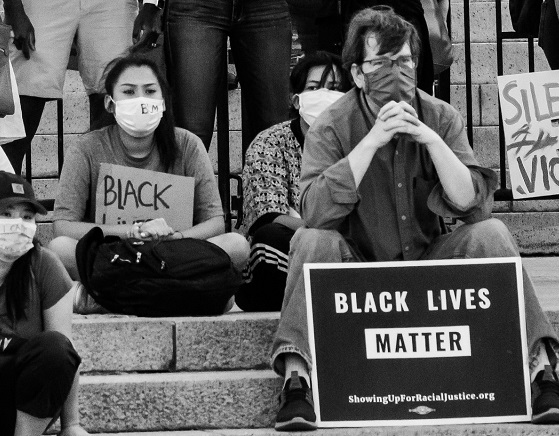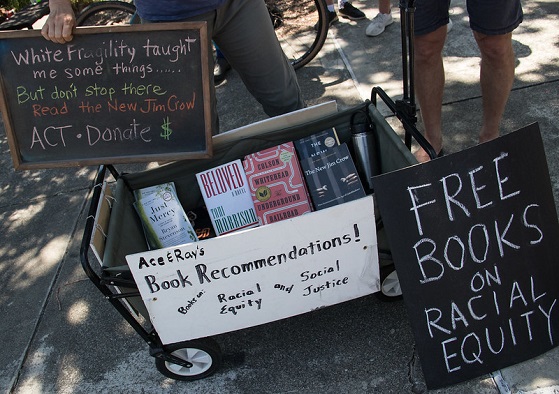What Is Mine to Do: Documentary on Peaceful Support.

{source}
What is mine to do? A powerful question any day, made more so by recent events.
Jane Elliott, a racial equality activist asks, “Which Whites among you want to be treated like Black people?” She asks this at every gathering she facilitates. She asks Whites to stand if they do. No one ever stands. She goes on to say, “That means you know what’s going on and you don’t want it for yourself. Why do you allow it for others?”
Some might answer, “But I don’t allow it.” The old adage, “If you’re not part of the solution, you’re part of the problem,” definitely applies here. But, it’s not always that simple, because rushing into action rarely gets the results we want.
So, what do you do? As with any circumstance, start with your spiritual practice and quiet your mind. It may be racing around, desperately trying to find something to do, but that is not the mindset that brings about the results you want. Quiet your mind. Breathe. Move into a space of deep listening and receptivity, and into simply be-ing.
Whatever the circumstance, who we are being always comes first, for who we are being has the greatest impact on what we are doing. I am committed to being a White ally and standing for racial equality. I am committed to non-violence and taking actions that will bring about a world that works for everyone. Being clear on being your best self paves the way for the actions that will have the greatest impact.
When you feel yourself centered and calm, you are ready to ask the question, “What is mine to do?”
From this deep-rooted place, the way to move forward arises. This is the place where Gandhi found his inspiration for non-violent civil disobedience. His conviction moved an entire culture to stand up in a way that had never been seen before on the planet. And it worked! The British left India.
Dr. Martin Luther King prayed and prayed until he was certain of his stance. Once certain, he then agreed to lead. In both cases, good people were murdered. In both cases, non-violent action ultimately created change. Neither would have been possible if these incredible men didn’t first center themselves in spiritual practice and then, and only then, take action.
I recently asked the question, “What is mine to do?” and through my spiritual practice arose the thought of creating a documentary film spotlighting what some folks were doing to support the end of racism. Because I knew it was mine to do, taking the actions to create this film came naturally and had a wonderful flow to it.
One day later, I posted the video and have received numerous responses from people it has inspired. A non-violent call to action, doing something I had never done before… it was my first documentary. That’s what’s possible when we are willing to sit, be and listen, before we take action.
I continue to ask myself “What is mine to do?” during my spiritual practice, as I know there will be other actions for me to take. That’s the other part of this practice… knowing there are actions for me to take and not allowing my restlessness or doubt to get in the way. I call this spiritual activism. Join me. Together we can end racism and create a world of racial equality. I know it. I invite you to know this with me.

{source}
[youtube]lVIe90I_97k[/youtube]
***
Rev. Cliff Rubin is the Senior Minister at Spiritworks Center for Spiritual Living in Burbank, CA. He is also the grateful husband of Ashley Fuller Rubin and father of Isaac Rubin. After achieving a BS in Filmmaking from the Los Angeles Film School, he has put together a troupe of amazing congregants to inspire through film, to creatively do what Mahatma Gandhi so eloquently stated, “Be the change you wish to see.”

